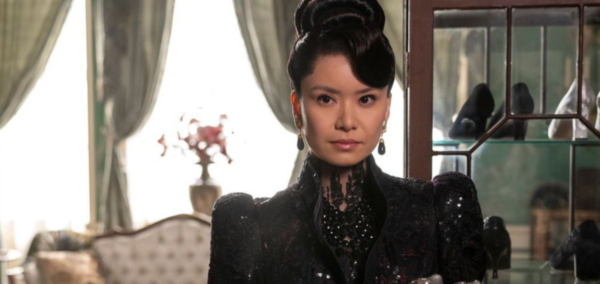
‘The university doesn’t really care’: Edinburgh lecturer on why they’re striking
They outlined five reasons why they are taking strike action
Staff at the University of Edinburgh have been participating in ongoing striking action since the beginning of February.
Similar strikes are occurring at 150 universities all across the UK. The strikes were planned to go ahead for 18 days between February and March, but over the weekend it was announced that the next two weeks of strike action will be cancelled after the UCU’s “breakthroughs in talks” with university employers. If no agreement is reached during these two weeks, strikes are expected to continue from the 16th March.
The Edinburgh Tab went to the Old College buildings on Thursday the 16th of February where strikers were demonstrating at the picket lines to speak to UCU members – we asked them why they were choosing to participate in strikes.

Hamish, a geography lecturer, explained the main reasons for his decision to go on strike:
1. ‘I think the headline one for me is that real pay has declined about 29 per cent since 2009, which is really substantial’
Concerns surrounding pay has been the biggest cause of university strike action for several years. This figure comes from the fact that the UCU has argued that pay increases have not matched rate of inflation.
2. ‘Our pensions have been cut by 35 per cent, which means if I ever get to retirement I will be much poorer than I would have been a few years ago’
This is a reference to changes to the Universities Superannuation Scheme (USS), a pension scheme used by thousands of university staff.
3. ‘About 50 per cent of the teaching our department is done by people who are on precarious or short-term contracts’
Most Read
UCU has maintained that the ‘casualisation’ of staff employment has repercussions for both teachers and students.
4. ‘We still have a gender and racial pay gap at this university’
Even Edinburgh’s student association has accepted the fact that there is a difference in pay for men and women, with men being paid eight per cent more.
5. ‘The university is making record profits, has more and more students, spends less and less of its income on its staff’
Strikers have maintained that profits should go to improvements in staff pay – in 2021, The University of Edinburgh made £391 million in tuition fees alone.
They went on to say that all of these facts imply that “the university doesn’t really care about the staff much. It’s hard being here, we’re on strike for a long time. We are losing a substantial amount of pay… We all care passionately about our teaching”. He maintains, overall, that strikers “do not take this lightly”.
Picket lines absolutely bursting again today🤩
What a stunning week. Well done everyone🎉
Now we need to bring this energy into the reballot🗳
No let up – vote YES💪#ucuRISING pic.twitter.com/tqY2HmqBig
— UCU (@ucu) February 16, 2023
When asked if they have considered other methods of striking that have a less severe impact on students, the geography lecturer made it clear that he understood the consequences of his actions for students: “[I’m not] under any illusion that this is the best thing to do or that it is going to magically work”. He implied that the UCU is contemplating other striking action such as a “marking and assessment boycott”.
You can watch the full video on our TikTok @theedinburghtab, here:
@theedinburghtab The Tab speaks to Edi lecturer about strikes #ucustrike #edinburghuniversity #strike ♬ original sound – The Edinburgh Tab
A University of Edinburgh spokesperson said: “The ongoing industrial action is part of a national campaign and we are listening to concerns about pensions, working conditions and pay. We are working with all appropriate groups, including UCU representatives, to secure a long-term outcome for the USS pension that is fair, affordable and sustainable for both individuals and employers.”
“We are committed to a fair offering for staff and offer many generous staff benefits, including excellent flexible working and family-friendly policies. We have been a Voluntary Living Wage employer since 2012 and we have not used zero-hour contracts since 2014. The University acknowledges that while some progress has been made to address pay gap challenges, there is more to be done. We are committed to working in partnership with recognised trade unions to understand the University’s workforce distribution and any associated pay gaps.”
UCEA was also contacted for comment.
Related stories recommended by this writer:
• Edinburgh University ‘reviewing’ how it detects plagiarism due to ChatGPT software
• Over 10,000 Scottish students denied university accommodation each year
• In pictures: Everything we know about the Edinburgh Jenners fire
















